Multiplication practice Math Worksheets for Ages 5-6
9 filtered results
-
From - To
Discover our engaging multiplication practice math worksheets designed specifically for ages 5-6! These interactive resources will help your child grasp fundamental multiplication concepts in a fun and inspiring way. Our worksheets feature colorful illustrations, simple problems, and age-appropriate exercises that promote learning through play. As children work through these worksheets, they'll build confidence in their math skills while enhancing their critical thinking abilities. Perfect for home schooling or classroom use, our multiplication practice worksheets foster a positive learning environment and make math easy and enjoyable. Start your child's journey to multiplication mastery today with our comprehensive and user-friendly worksheets!
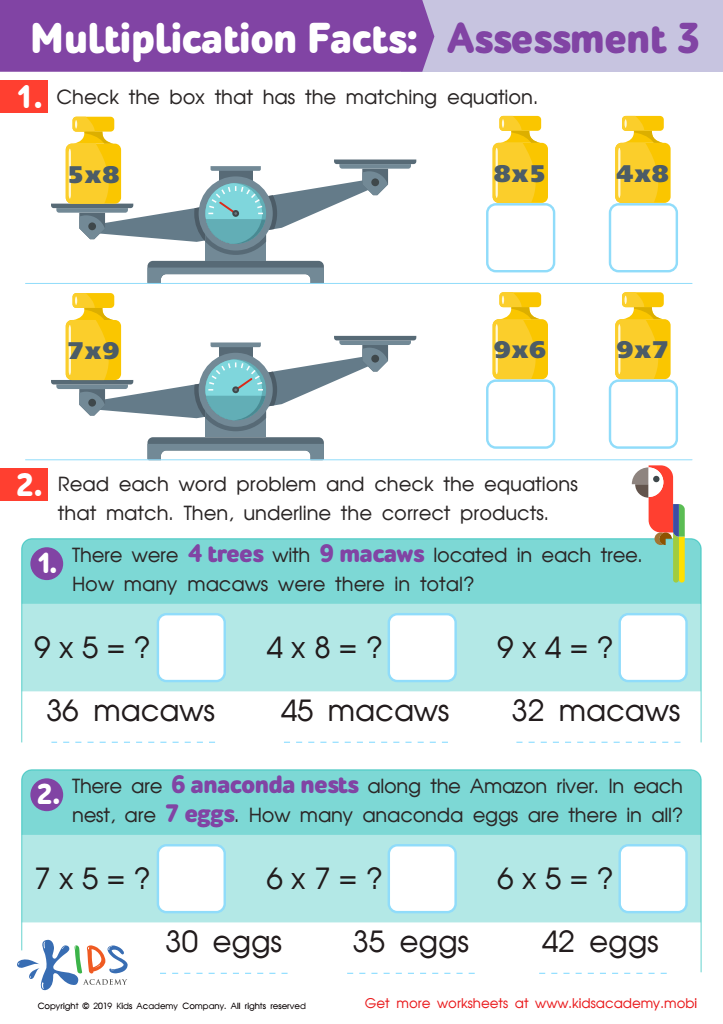

Multiplication Facts: Assessment 3 Worksheet


Enrichment -2 Step Word Problems Worksheet
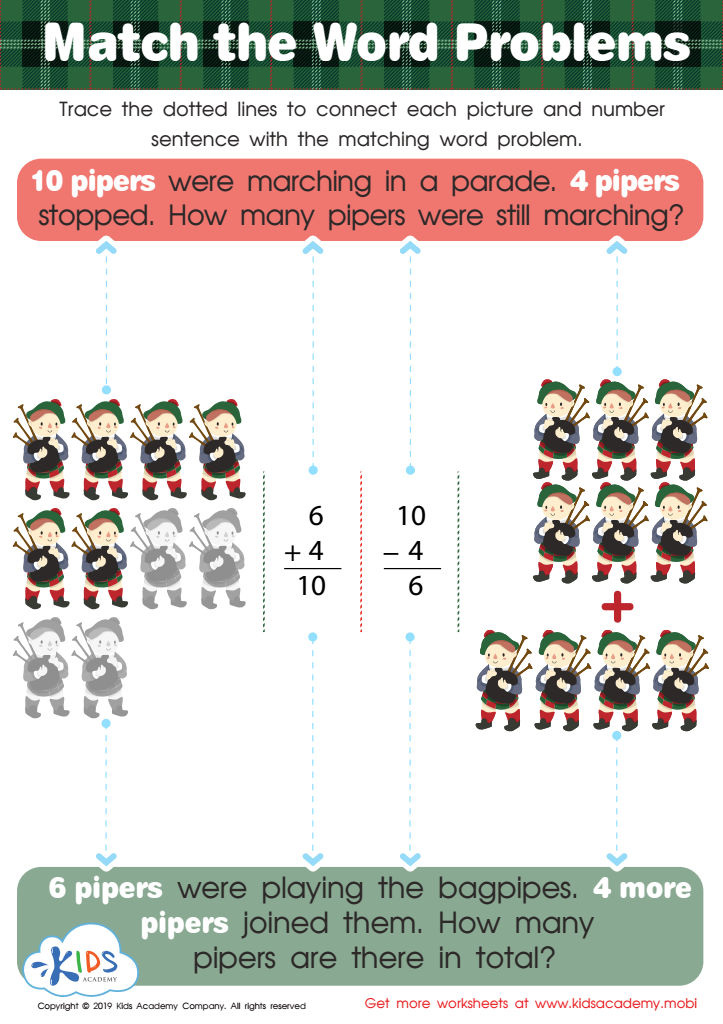

Match the Word Problems Worksheet
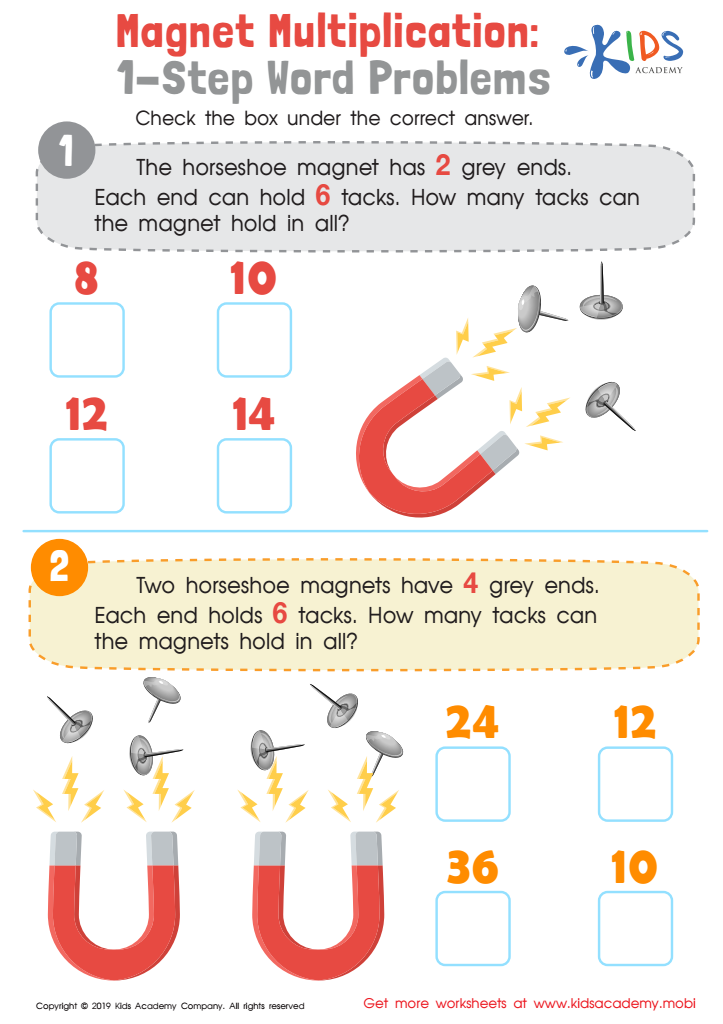

Magnet Multiplication: 1-Step Word Problems Worksheet
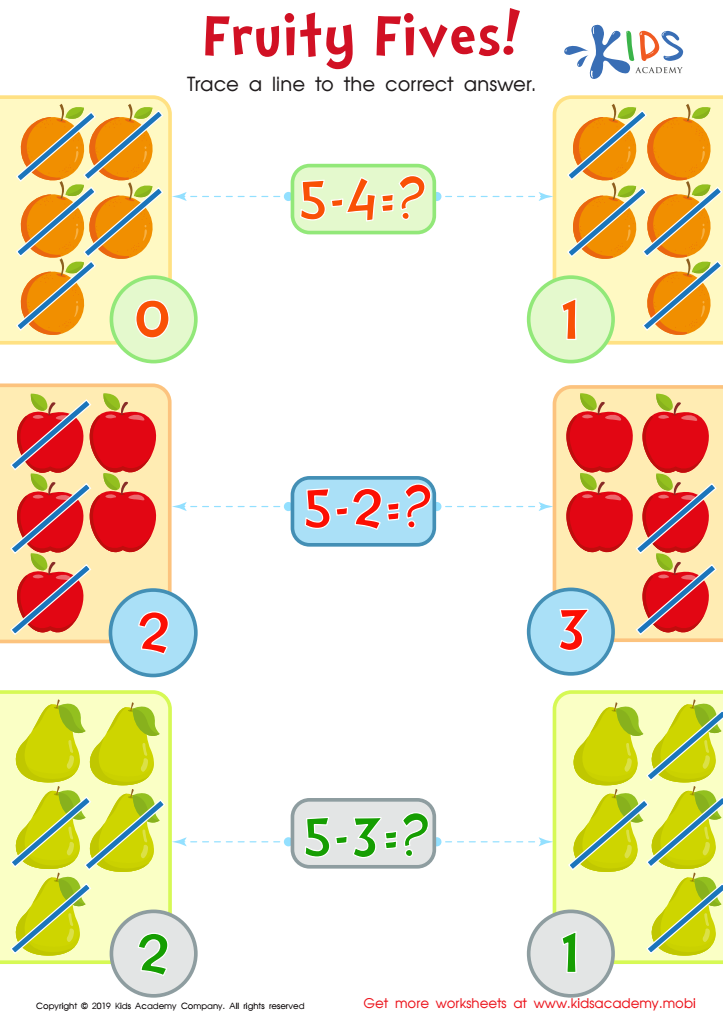

Fruity Fives! Worksheet
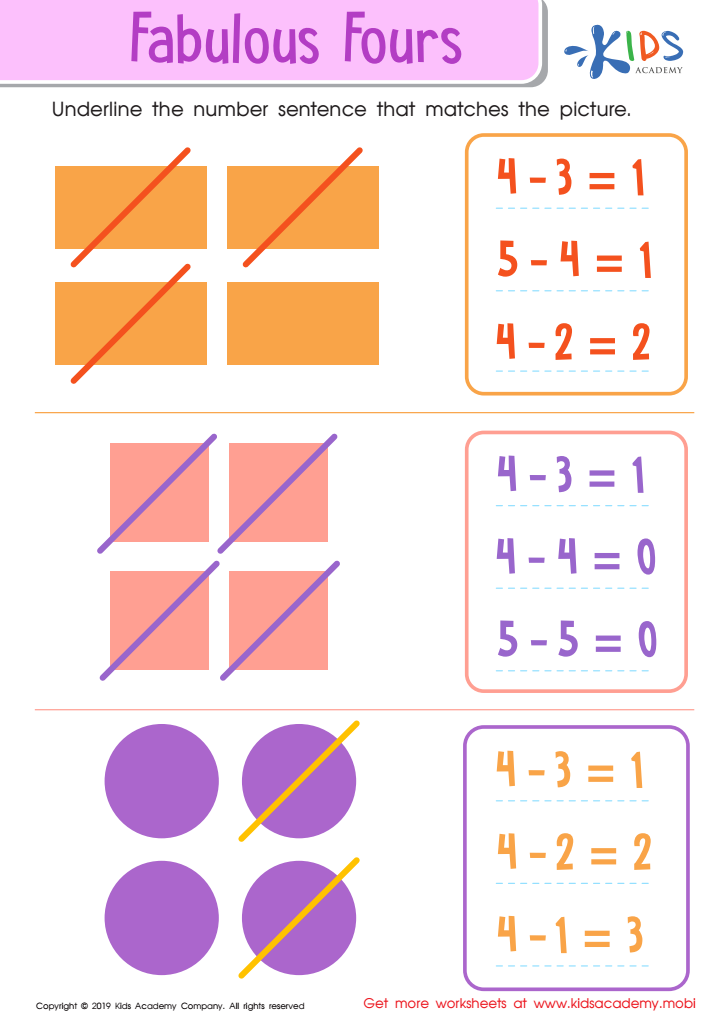

Fabulous Fours Worksheet
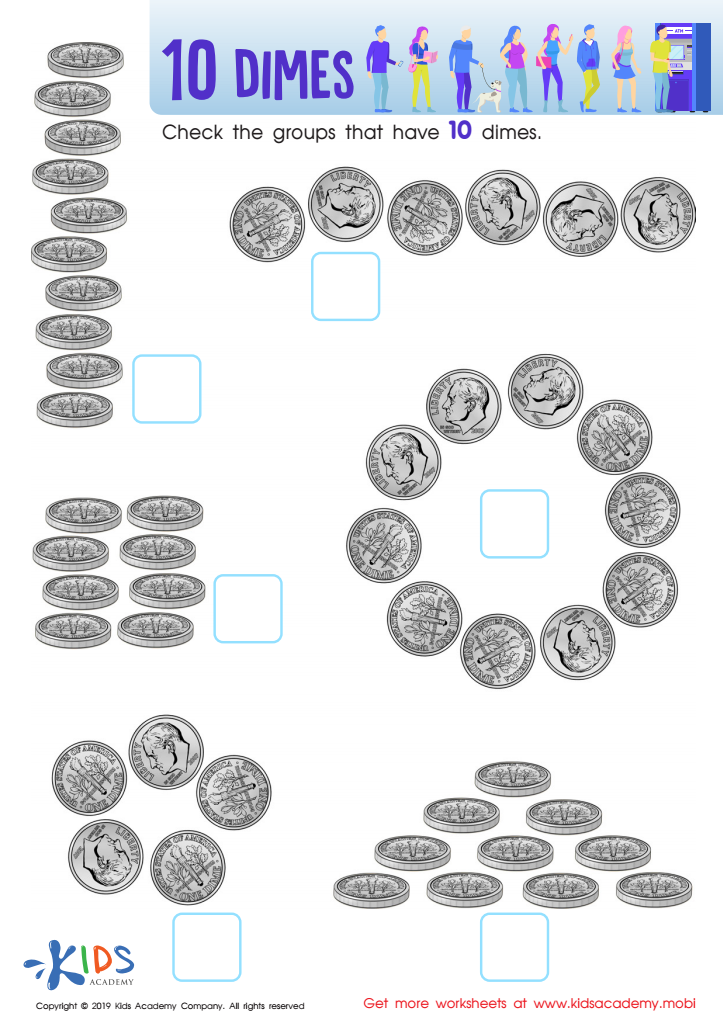

10 Dimes Worksheet
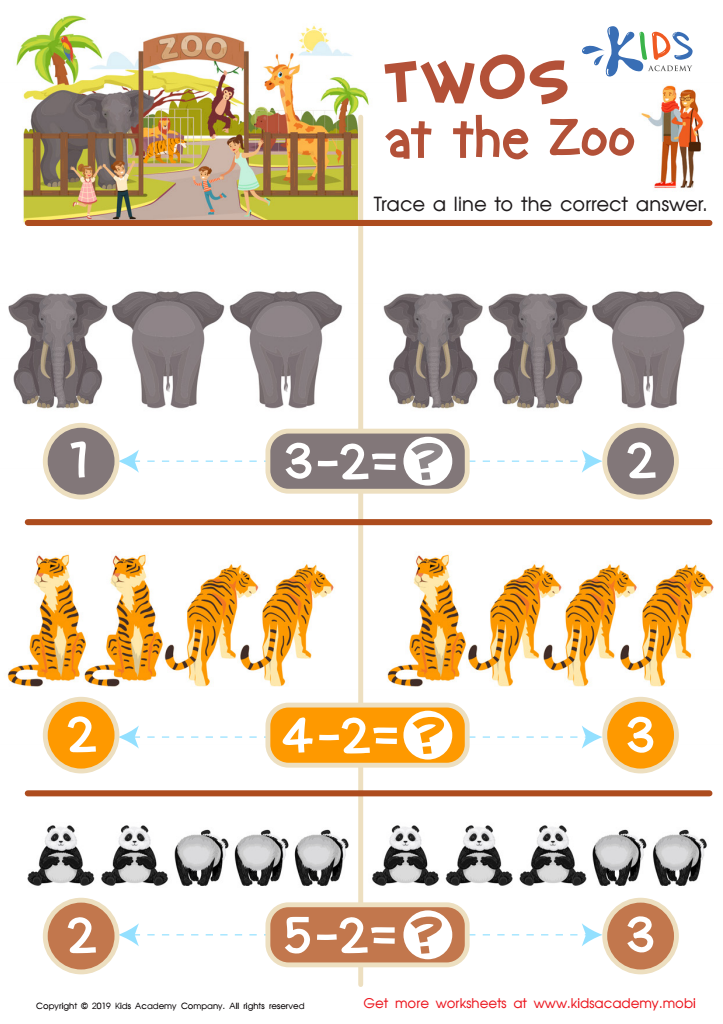

Twos at the Zoo Worksheet
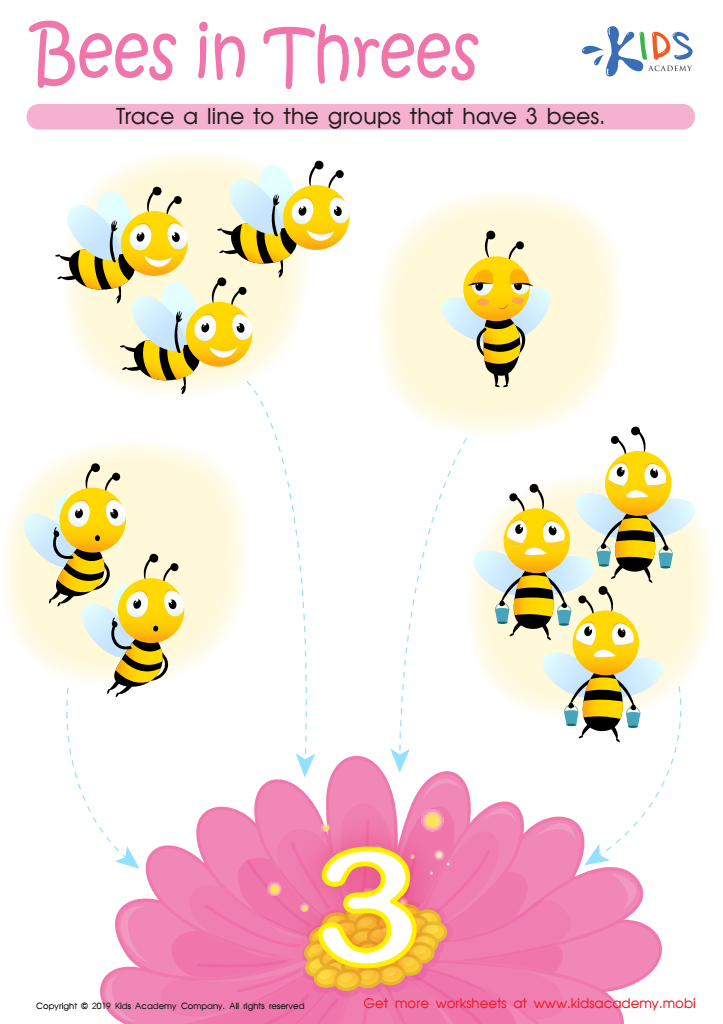

Bees in Threes Worksheet
Parents and teachers should prioritize multiplication practice for children aged 5-6 for several compelling reasons. First, introducing foundational math concepts early can enhance children's cognitive development and geometry skills, fostering a positive mindset toward mathematics. Multiplication, though traditionally introduced later, can be understood through concrete manipulation and visual aids, making it accessible at this young age.
Engaging children with multiplication-related activities, such as grouping objects or using arrays, helps establish a solid number sense. This, in turn, paves the way for more advanced mathematical concepts in the future, ensuring a smooth transition to complex problem-solving as they progress through their education.
Moreover, early multiplication practice cultivates essential skills such as critical thinking and spatial reasoning, which are beneficial not only in mathematics but across all subjects. Building fluency with multiplication also boosts children's confidence, helping to mitigate anxiety associated with math.
Furthermore, integrating fun and interactive multiplication games encourages a collaborative learning environment, strengthening the bonds between students, peers, parents, and teachers. Fostering a love for math during the early years ultimately sets a positive trajectory for lifelong learning and success in school and beyond.
 Assign to My Students
Assign to My Students






















